Rivers
A river is a natural flowing watercourse, usually freshwater, flowing towards an ocean, sea, lake or another river. Rivers have played a crucial role in shaping the Earth's surface and have been vital to the development of human civilizations.
Formation of Rivers
Rivers are formed through the accumulation of water from various sources such as rainfall, melting snow, and underground springs. The water flows downhill due to gravity and follows the path of least resistance, gradually forming a channel and eroding the surrounding landscape.
Key Features of Rivers
- Source: The point where a river begins, often in the form of a spring or melting glacier.
- Channel: The pathway through which the river flows, carving through the landscape over time.
- Tributaries: Smaller rivers or streams that flow into a larger river.
- Mouth: The point where the river empties into a larger body of water such as an ocean or lake.
- Meanders: Curves or bends in the river's path, formed through erosion and deposition.
- Deltas: Triangular-shaped landforms at the mouth of a river, formed by the deposition of sediment carried by the river.
Importance of Rivers
Rivers have been crucial for human civilizations throughout history. They provide a source of water for drinking, irrigation, and industrial use. Rivers also serve as transportation routes, facilitating trade and communication. Additionally, they support diverse ecosystems and wildlife habitats.
Human Impacts on Rivers
Human activities such as pollution, dam construction, and deforestation have significantly impacted rivers and their ecosystems. It is essential to manage and protect rivers to ensure their sustainability and the well-being of the surrounding environment.
Study Guide
Here are some key concepts to focus on when studying rivers:
- Describe the formation of rivers and the factors that contribute to their flow.
- Identify and explain the key features of rivers, including their source, channel, tributaries, mouth, meanders, and deltas.
- Discuss the importance of rivers for human civilizations and the environment, highlighting their roles in water supply, transportation, and ecosystems.
- Analyze the impact of human activities on rivers and propose solutions for their conservation and management.
By understanding the formation, features, importance, and human impacts on rivers, you will gain a comprehensive knowledge of this essential natural resource.
[Rivers] Related Worksheets and Study Guides:
.◂Science Worksheets and Study Guides Sixth Grade. Weather patterns
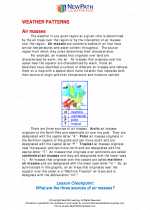
 Worksheet/Answer key
Worksheet/Answer key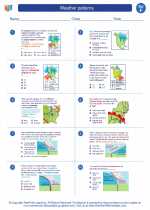
 Worksheet/Answer key
Worksheet/Answer key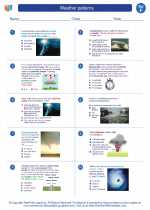
 Worksheet/Answer key
Worksheet/Answer key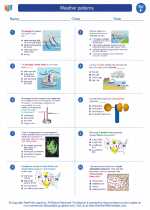
 Vocabulary/Answer key
Vocabulary/Answer key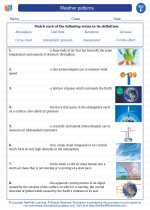
 Vocabulary/Answer key
Vocabulary/Answer key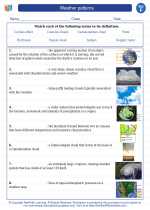
 Vocabulary/Answer key
Vocabulary/Answer key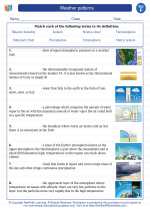
 Vocabulary/Answer key
Vocabulary/Answer key
